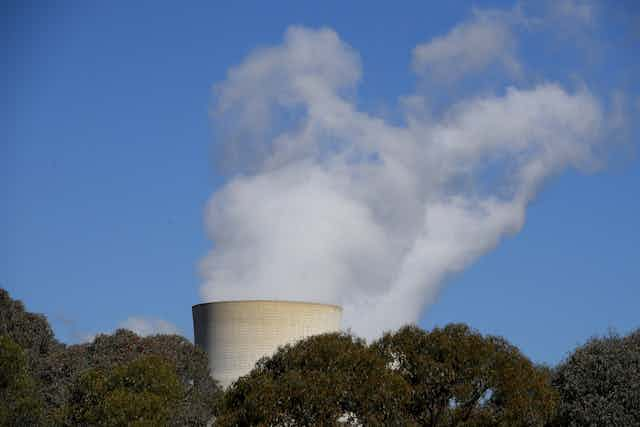Few topics have attracted as much political attention in Australia over the past decade as emissions reduction policy.
Amid mounting concern over electricity price increases across Australia and coinciding with blackouts in South Australia and near-misses in New South Wales, the Australian government asked Chief Scientist Alan Finkel to provide a blueprint for reform of the electricity industry, in a context in which emissions reduction policy was an underlying drumbeat.
In a new poll of the ESA Monash Forum of leading economists, a majority said that Finkel’s suggested Clean Energy Target was not necessarily a better option than previously suggested policies such as an emissions trading scheme. But many added that doing nothing would be worse still.
Read more: The Finkel Review: finally, a sensible and solid footing for the electricity sector
The Finkel Review’s terms of reference explicitly precluded it from advising on economy-wide emissions reduction policy, and implicitly required it also to reject emission reduction policies such as an emissions tax or cap and trade scheme.
One of the Finkel Review’s major recommendations was a Clean Energy Target (CET). This is effectively an extension of the existing Renewable Energy Target to cover power generation which has a greenhouse gas emissions intensity below a defined hurdle. Such generation can sell certificates which electricity retailers (and directly connected large customers) will be required to buy.
The ESA Monash Forum panel was asked to consider whether this approach was “preferable” to an emission tax or cap and trade scheme. As usual, responses could range from strong disagreement to strong agreement with an option to neither agree nor disagree. Twenty-five members of the 53-member panel voted, and most added commentary to their response – you can see a summary of their verdicts below, and their detailed comments at the end of this article.
A headline result from the survey is that a large majority of the panel does not think the CET is preferable to a tax or cap and trade scheme. None strongly agreed that the CET was preferable, whereas 16 either disagreed or strongly disagreed, and four agreed.
Of the four who agreed, three provided commentary to their response. Stephen King preferred the CET on the grounds of its ease of implementation but otherwise would have preferred a tax or cap and trade scheme. Michael Knox agreed on the basis that the CET was preferable to the existing Renewable Energy Target. Harry Bloch unconditionally endorsed the CET.
Of the five who neither agreed nor disagreed, three commented and two of them (Paul Frijters and John Quiggin) said there was not much to distinguish a CET from a tax or cap and trade scheme. Warwick McKibbin, who disagreed with the proposition, nonetheless also suggested that the CET, tax and cap and trade scheme were comparably effective if applied only to the electricity sector.
However, closer examination of the comments suggests much greater sympathy with Finkel’s CET recommendation than the bare numbers indicate. Even for those who strongly disagreed that the CET was preferable, none suggested that proceeding with a CET would be worse than doing nothing. But eight (Stephen King, Harry Bloch, Alison Booth, Saul Eslake, Julie Toth, Flavio Menezes, Margaret Nowak and John Quiggin) commented that proceeding with the CET would be better than doing nothing. Interestingly none of these eight explained why they thought doing something was better than doing nothing. Does it reflect a desire for greater investment certainty or a conviction that reducing emissions from electricity production in Australia is important?
Seven respondents (Stephen King, Alison Booth, Saul Eslake, Julie Toth, Gigi Foster, Lin Crase and John Quiggin) alluded to the political constraints affecting the choice, of which several drew attention to Finkel’s own observations. None of these seven suggested that the political constraint invalidated proceeding with the CET.
Of the 19 economists who provided comments on their response, 16 thought a tax or cap and trade scheme better than a CET. Numbers were equally drawn (three each) as to whether a tax or cap and trade was better than the other, with the remaining 10 invariant between a tax or cap and trade.
My overall impression is that in judging Dr Finkel’s CET recommendation, most of the panel might agree with the proposition that the “the perfect is the enemy of the roughly acceptable”. I surmise that in a decade past, many members of the panel would have held out for greater perfection, but now they think prevarication is more cost than benefit, and it is better to move on and make the best of the cards that have been dealt.
In emissions reduction policy the mainstream advice from Australia’s economists has not been persuasive. But this is hardly unique to Australia, as the pervasiveness of regulatory approaches in other countries shows. Perhaps an unavoidably compromised policy that is nonetheless well executed may be better than a brilliant policy that is poorly executed. Even if they could not have been more persuasive in design, Australia’s economists should still have much that is useful to contribute in execution. Hopefully more can be drawn into it.
Read the panel’s full responses below:
This is an edited version of the summary of the report’s findings originally published by the ESA Monash Forum.

